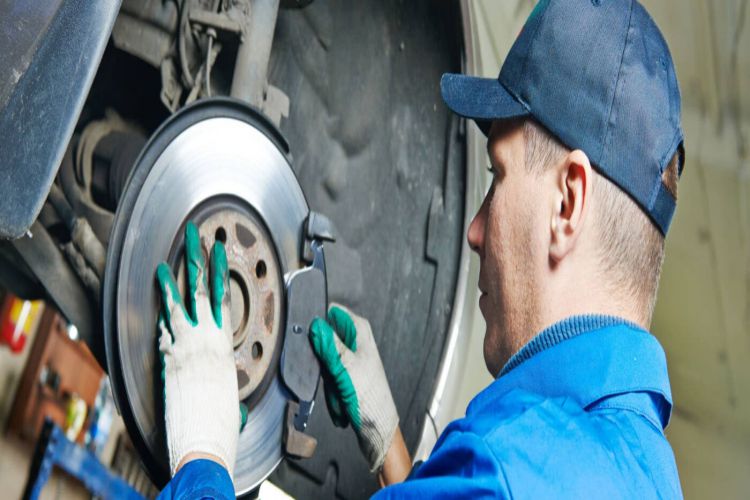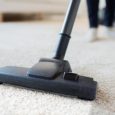 Volkswagen cars are best known for their reliability and performance. However, like any car, sometimes they break, and one of the common problems occurring during the braking process happens to be grinding noises; hence, knowing when to get them repaired is a concern of safety and car lifetime. In this blog post, we’re going to discuss the most common reasons for these sounds, why a professional inspection is of such importance, and at what point you should repair the problems to ensure that your Volkswagen runs smoothly down Australia’s roads.
Volkswagen cars are best known for their reliability and performance. However, like any car, sometimes they break, and one of the common problems occurring during the braking process happens to be grinding noises; hence, knowing when to get them repaired is a concern of safety and car lifetime. In this blog post, we’re going to discuss the most common reasons for these sounds, why a professional inspection is of such importance, and at what point you should repair the problems to ensure that your Volkswagen runs smoothly down Australia’s roads.
Common Causes of Grinding Noises in Volkswagen Brakes
Grinding noises during braking can be indicative of numerous issues that could range from worn brake pads to rusty rotors. Here are some common reasons why your Volkswagen’s brakes may grind:
Worn Brake Pads
Worn-out brake pads are the most frequent cause of grinding noises. As the friction material wears down, the steel backing of the brake pads comes into contact with the rotors. This metal-on-metal contact produces a loud grinding sound. It’s a clear signal that the pads need immediate replacement to avoid further damage to the rotors, which can be significantly more expensive to repair.
Debris Between Brake Components
Small stones or debris are usually trapped between the brake pad and the rotor, especially when driving on rough or unpaved roads. The debris causes a scraping or grinding noise. However, most of the time, such debris clears out with continued driving, but persistent noises should have you take your car to Volkswagen Mechanics Sydney for inspection to ensure that there is no damage to the brake components.
Rusty Rotors
Heavy humidity areas like the coast in Sydney cause rust development on the brake rotors if they have been idle for a very long time. The rust becomes friction and, thus, grinding noises occur whenever one depresses the brake pedal. With frequent driving or timely servicing, this would be reduced and rust would not affect your braking efficiency
Glazed Brake Pads or Rotors
Glazing occurs when the brake pads or rotors get too hot and they get so smooth and shiny. It causes poor braking, grinding, or squealing sounds when one tries to brake. It could happen if the car was driven aggressively or the brakes overheated due to excessive downhill driving. The only way to get those brakes back in working condition is to resurface or replace these parts.
Low-Quality Brake Pads
Low-quality and inexpensive brake pads also produce grinding noises. Normally, these brake pads contain a high metal content. Thus, you will hear a grinding sound during braking. In contrast, high-quality ceramic or semi-metallic brake pads offer durability and less noise but are a bit costlier. Thus, to get the best one, an expert in Volkswagen models who is well-known as a mechanic in Sydney would help you best.
When to Seek Professional Repair for Volkswagen Brake Noises
Understanding when to seek professional help is very important in maintaining the performance and safety of your vehicle. Here are some key instances when it’s necessary to consult a professional car brake repair service:
Persistent Grinding Noises
You could hear a grinding whenever you brake, telling you that a brake pad has worn away. Then it calls for the immediate inspection of such brake pads in order not to find oneself in a position where the rotors shall be destroyed more in case the grinding sounds do not cease. A grinding that persists normally implies metal-to-metal contact and, therefore, harms and can cause braking failure.
Braking Vibration or Pedal Shudder
If you feel a vibration or shudder through the brake pedal, this may be an indication of warped rotors or something worse. Warped rotors are often resurfaced or replaced. Do not wait for long before visiting a professional Volkswagen mechanic in Sydney for a quick diagnosis and resolution.
New Brake Pads Still Causing Noise
It is normal to have a slight noise after fitting new brake pads, and it will only go away when the pads are well bedded in. However, if the grinding persists or worsens, then there might be problems such as faulty installation, low-quality brake pads, or improper lubrication of caliper bolts. In this case, one should seek the services of an experienced car brake repair service to correct these faults.
Grinding Noise After Long Periods of Inactivity
If you left your Volkswagen parked for a long period, especially in wet or oceanic parts of Australia, rust would probably be forming on the brake parts. Most such rust tends to produce grinding noises at first start. If it continues after the first brake cycle, a professional inspection is called for so that the person knows that important parts are not damaged.
Smoke or Burning Smell While Braking
A burning smell or smoke from the wheels while braking is a critical warning sign that the brakes are overheating. This may be caused by stuck calipers, excessive use, or glazed brake pads. Overheated brakes compromise the safety of the vehicle and should be attended to as soon as possible by a qualified car mechanic.
Conclusion
The brake system in your Volkswagen is important not only for safety but also for the longevity of the vehicle, especially in the diverse and sometimes challenging conditions across Australia. Grinding noises never go unnoticed because they could mean worn-out brake pads, rusted rotors, and other critical issues that may need attention. Be it routine maintenance or an emergency repair, consulting a car brake repair service in Sydney ensures that any problem that arises is addressed promptly and effectively.
FAQS
Why do Volkswagen brakes make grinding noises?
Grinding sounds usually occur when the brake pads are worn out, and this metal backing rubs onto the rotors. However, rust, debris, or low-quality brake pads may also cause such effects. It is always important to inspect immediately before worsening.
Can I still drive my Volkswagen with grinding brakes?
No, you cannot drive on grinding brakes. Grinding sounds mean that there is a metal-to-metal contact situation, which results in reduced braking efficiency and the possibility of brake failure. It needs to be looked at as soon as possible.
Can rust be the cause of grinding in my Volkswagen brakes?
Yes, rust on rotors can cause grinding sounds, and this is common if your car has not been driven for a long time. It is also common in coastal areas such as Sydney. In case it persists, the rotors need to be inspected professionally to determine whether they can be reused.
How long can I continue driving with grinding brakes?
Grinding brakes should not be driven. Grinding brakes can indicate the condition of your brakes is unsafe. Brake pads need to be inspected and fixed right away to avoid damaging them any more or perhaps causing brake failure.
What if my new Volkswagen brake pads are grinding?
If new pads still grind, then the installation is incorrect or of poor quality. Recommend consulting a car brake repair service for proper fit and quality assurance.




